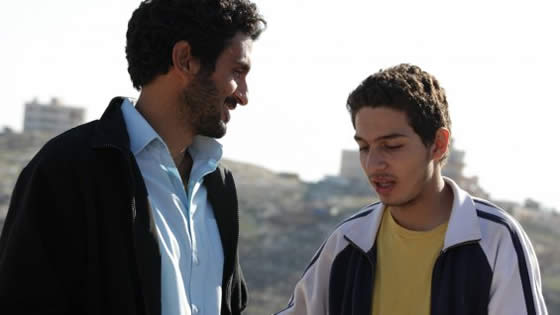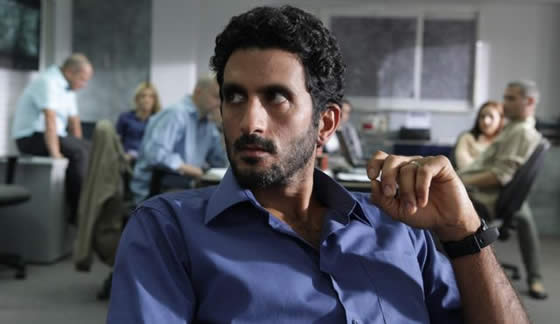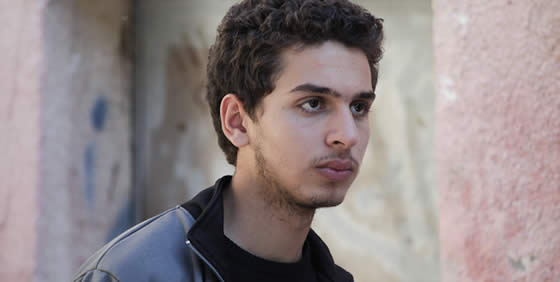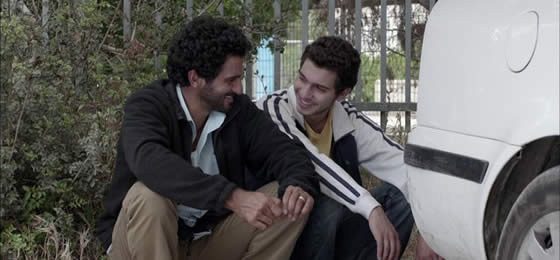 “Bethlehem”, Israel’s Oscar selection for the Best Foreign Language Film Award, tells the story of the complex relationship between Razi, an Israeli Secret Service officer, and his teenage Palestinian informant Sanfur.
“Bethlehem”, Israel’s Oscar selection for the Best Foreign Language Film Award, tells the story of the complex relationship between Razi, an Israeli Secret Service officer, and his teenage Palestinian informant Sanfur.
Sanfur is the younger brother of Ibrahim, a highly wanted Palestinian militant. Razi, determined to capture or assassinate Ibrahim, recruited Sanfur when he was just 15, investing all his energy in the kid and developing a very intimate, almost fatherly relationship with him. Sanfur, who has always lived in his brother’s shadow, thrives on Razi’s attention. Now 17, he struggles to navigate between Razi’s demands and his loyalty to his brother, living a double life and lying to both.
When the Israeli Secret Service discovers how deeply involved Sanfur is in his brother’s activities, Razi is accused of crossing professional lines and is ordered to sacrifice Sanfur in an upcoming attempt to assassinate Ibrahim. As preparations for the military strike are underway both Razi and Sanfur are forced to make choices that will irreversibly change their lives.
Co-written by Israeli director Yuval Adler, and Ali Waked, an Arab journalist who spent years in the West Bank, and based on extensive research, “Bethlehem” transcends perspectives, revealing the impossible situations and moral dilemmas associated with the dark and fascinating world of human intelligence.
Bijan Tehrani: How did you come up with the idea of your film Bethlehem?
Yuval Adler: I was always very interested in the “Behind the Scenes” aspect of things, like how things actually operate—not what you see from the outside. The way it started really is that I thought that it would be great to make a film that shows that you can take a perspective that will take you to different sides and it will also center on human intelligence and it will find out how you can get someone to become an informant, especially in the conflict, where it is such a radical thing to become an informant. So I immediately had to find someone to write it with me, somebody who was Palestinian who could work with me and, through a friend, I met Ali [Ali Waked] and then we did a lot of research. We did research for years, wrote along the way, and made many of changes as we moved progressed. I got along really well with Ali and we really worked well together. We wanted to make the same film and the thing that really most surprised us is that when we started, we did not understand how interesting human intelligence is and how interesting the dynamic between a handler and an informant is. Only when we researched it and managed to actually get to people—some ex-informants and especially some secret service guys—did we understood that the job of the handler is to create this intimacy with the informant and their job is to actually find the chest and the hole in the soul of the informant. It is not based, like you would think, on violence. The cliché is that it is based on threats and violence, like give me information or I will do something to you. This is actually a relationship that you develop over time and somebody works for you for many years as an informant; that is what we learned from the secret service guys we spoke to. When we understood that this most exploited relationship is actually created by making a real, intimate bond, we understood this duality is the most interesting thing and we focused the film on it. In the beginning this was not the focus, it became the focus as we researched and learned.
BT: The film reminded me of Middle Eastern mythology—even Greek mythology—with the whole relationship between the informant and the secret agent.
YA: Yes, I agree with that. I don’t like to articulate it myself, then it becomes the interpretation for the film and then I am in a position where I am telling the viewers what they should think. I do, however, feel that the relationships in the film are a big part of the story.
BT: How difficult was it to not take sides? YA: The secret to it is just that you try to see the world from the eyes of each character. When you are looking at it from the Israeli secret service agent, you see what he sees and how he interprets it, and when you are with the Brigade leader, you see the world how he sees it. So people sometimes confuse it and they don’t understand what we did. They will say, “Oh, you portray the Palestinian authority as corrupt, and that it was not fair.” But we talked to many Brigade leaders and Ali knew many of them, and they said that in those years, the people that they felt betrayed them were the Palestinian authorities that used them during the conflict to fight and then got rid of them when the when it was uncomfortable. So when you talk to a Palestinian leader, he would portray the Palestinian authority as paying people to stop the struggle, but the movie portrayal is not what me and Ali think about the Palestinians. We wanted to show the views of people that were actually there, and we just put their words on the screen. We met these people, we listened to them and we asked how the world looked to them. The result is what we put in the film, so in a way the thing about not taking sides or taking sides is not relevant. Each person in his own eyes is right, and each person in his own eyes, if you are respectful, has their own story—and you just have to listen to them. So to the people that worry about how people are portrayed in the film, if they realized that really what we show is how each character in the films sees their own situation from their point of view, then they would actually understand the film better I think.
YA: The secret to it is just that you try to see the world from the eyes of each character. When you are looking at it from the Israeli secret service agent, you see what he sees and how he interprets it, and when you are with the Brigade leader, you see the world how he sees it. So people sometimes confuse it and they don’t understand what we did. They will say, “Oh, you portray the Palestinian authority as corrupt, and that it was not fair.” But we talked to many Brigade leaders and Ali knew many of them, and they said that in those years, the people that they felt betrayed them were the Palestinian authorities that used them during the conflict to fight and then got rid of them when the when it was uncomfortable. So when you talk to a Palestinian leader, he would portray the Palestinian authority as paying people to stop the struggle, but the movie portrayal is not what me and Ali think about the Palestinians. We wanted to show the views of people that were actually there, and we just put their words on the screen. We met these people, we listened to them and we asked how the world looked to them. The result is what we put in the film, so in a way the thing about not taking sides or taking sides is not relevant. Each person in his own eyes is right, and each person in his own eyes, if you are respectful, has their own story—and you just have to listen to them. So to the people that worry about how people are portrayed in the film, if they realized that really what we show is how each character in the films sees their own situation from their point of view, then they would actually understand the film better I think.
BT: I think it is an effective film as far as getting people who have extreme ideas on either side, to understand things a little better.
YA: It happens like this in Israel a little bit and lets people know about the different ideas on the left or the right. We kind of refuse to define ourselves in this film, and that confused people, but people both from the left and the right loved the film. Usually a film like this would divide the country, but this film is the opposite of that, across the board people did not see it as a political tool.
BT: So people did not see this as a one sided film?
YA: Not much, not much at all. There were even articles saying how it is odd that our film is embraced by both sides and the discussion that the film is generating, because it is kind of uncharacteristic.
BT: One thing that the film shows, despite a tragic ending, is that there is hope for the future. 
YA: I think so too. I really feel like that, and a lot of people have said that to me. With this sensitive situation, we have to portray and suggest a different type of solution and let the viewer to try to be the one who figures out the solution. It is not the job of the film to reconcile the characters, so in a way, a lot of people actually see it as hopeful that some of them can understand the other side; that is how I feel about it.
BT: I think the simple reason is that the film shows how you can love each other and kill each other at the same time.
YA: I know, and I am surprised at how some people think. In America, I heard that someone wrote that I tried to show that there is no hope for peace, and I am really surprised by that because that is so not what Ali and I are trying to show— quite the opposite, actually.
BT: Congratulations on having Bethlehem submitted for Oscar consideration. How do you see your chances?
YA: I have no idea really, we all hope for the best. I really don’t have a sense of the buzz or what people are saying because I have never done this before and I am kind of a superstitious guy—I don’t like to try to control the consequences or calculate them too much, I just try to do my best and that is it. I feel if I did otherwise that it would be presumptuous and wrong.
BT: What is the next project that you are working on?
YA: I have a couple of things that I am developing. One is a script and one is a bigger film that I am trying to put together. It is too early and I don’t like to talk about it because it is too fragile in my mind, but it is not dealing with this conflict. I am very interested in seeing people in extreme situations and I am very interested in understanding those situations. I am very interested in trying to get the audience to the point of view of somebody so they can understand how the world looks to somebody else.
